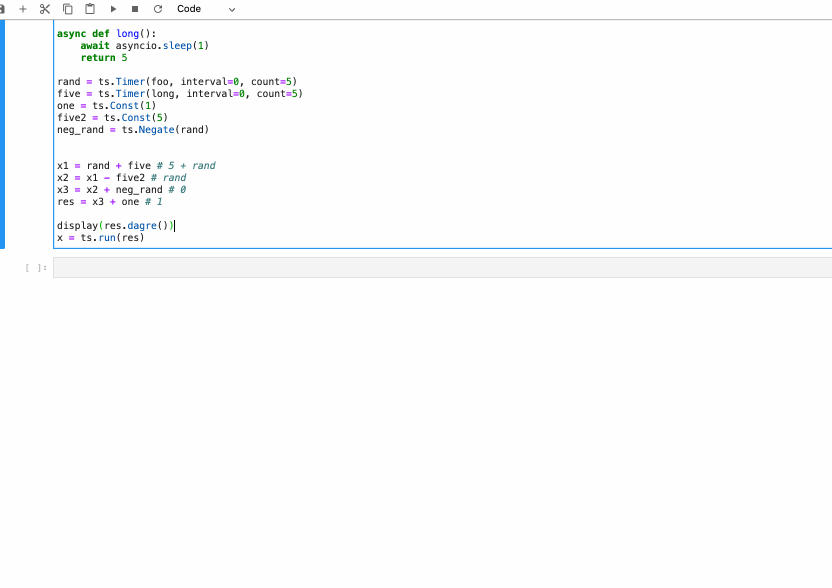Python Data Streams
Tributary is a library for constructing dataflow graphs in python. Unlike many other DAG libraries in python (airflow, luigi, prefect, dagster, dask, kedro, etc), tributary is not designed with data/etl pipelines or scheduling in mind. Instead, tributary is more similar to libraries like mdf, pyungo, streamz, or pyfunctional, in that it is designed to be used as the implementation for a data model. One such example is the greeks library, which leverages tributary to build data models for options pricing.
Install with pip:
pip install tributary
or with conda:
conda install -c conda-forge tributary
or from source:
python setup.py install
Note: If installing from source or with pip, you'll also need Graphviz itself if you want to visualize the graph using the .graphviz() method.
Tributary offers several kinds of streams:
These are synchronous, reactive data streams, built using asynchronous python generators. They are designed to mimic complex event processors in terms of event ordering.
These are functional streams, built by currying python functions (callbacks).
These are lazily-evaluated python streams, where outputs are propogated only as inputs change. They are implemented as directed acyclic graphs.
- Streaming: In this example, we construct a variety of forward propogating reactive graphs.
- Lazy: In this example, we construct a variety of lazily-evaluated directed acyclic computation graphs.
- Automatic Differentiation: In this example, we use
tributaryto perform automatic differentiation on both lazy and streaming graphs.
You can visualize the graph with Graphviz. All streaming and lazy nodes support a graphviz method.
Streaming and lazy nodes also support ipydagred3 for live update monitoring.
Here green indicates executing, yellow indicates stalled for backpressure, and red indicates that StreamEnd has been propogated (e.g. stream has ended).
Here green indicates executing, and red indicates that the node is dirty. Note the the determination if a node is dirty is also done lazily (we can check with isDirty whcih will update the node's graph state.
See the CATALOG for a full list of functions, transforms, sources, and sinks.
Thanks to the following organizations for providing code or financial support.
This software is licensed under the Apache 2.0 license. See the LICENSE file for details.






